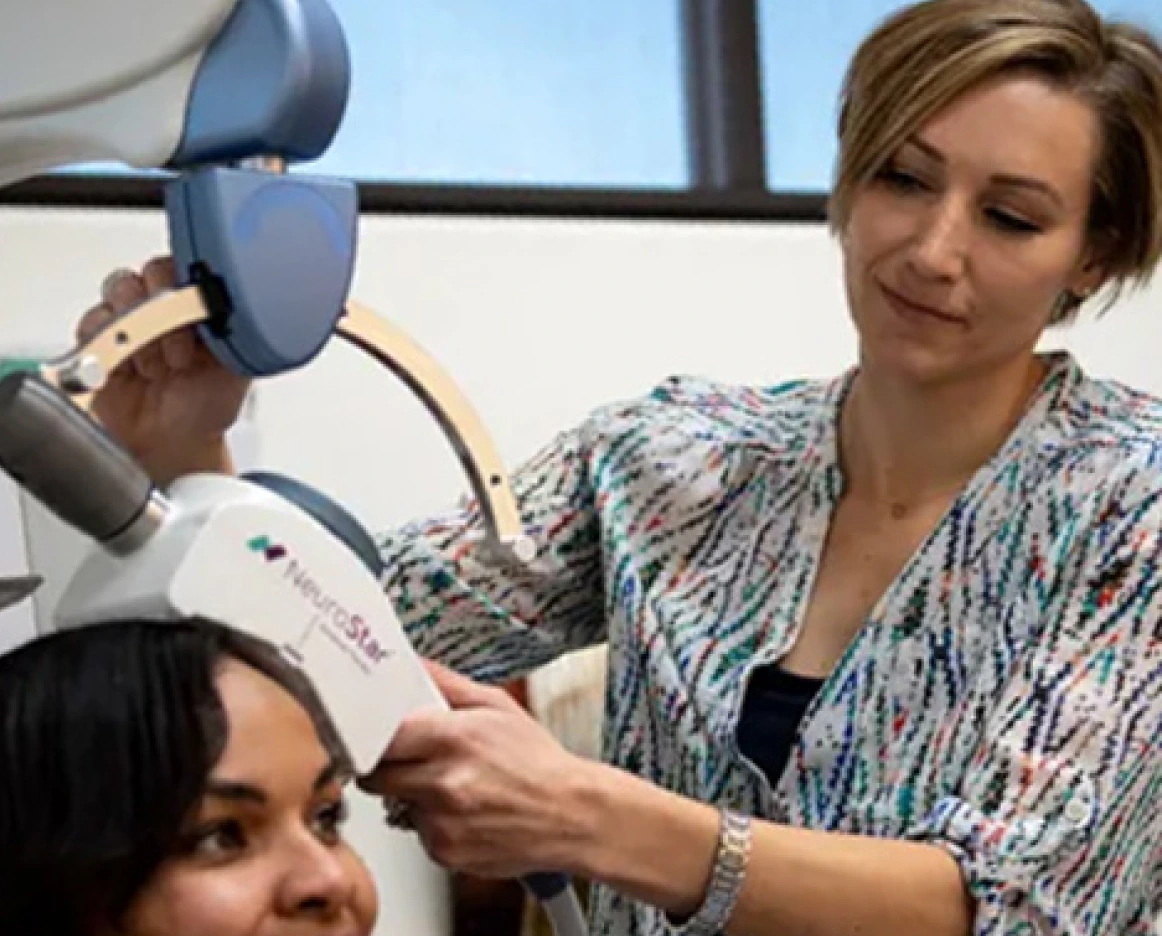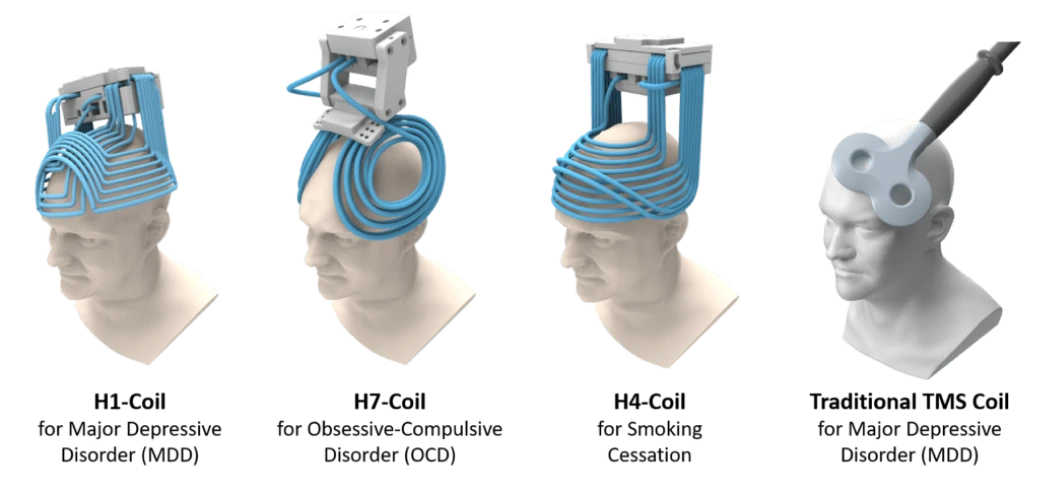Transcranial magnetic stimulation (TMS) is a non-invasive procedure that treats various mental health conditions, including depression, obsessive-compulsive disorder (OCD), anxiety, and post-traumatic stress disorder (PTSD). It involves using magnetic pulses to stimulate nerve cells in the brain, specifically targeting areas associated with mood regulation. TMS has been FDA-approved for treating major depressive disorder, OCD, and smoking cessation. However, our board-certified psychiatrist, Dr. Nicholle Peralta, also uses this therapy to help patients with PTSD, anxiety, and other conditions. TMS is a highly effective treatment for restoring mental wellness and improving quality of life.



OCD is a mental health condition characterized by recurring, intrusive thoughts (obsessions) and repetitive behaviors or mental acts (compulsions) that a person feels compelled to perform to alleviate anxiety. TMS treatment for OCD targets specific brain circuits involved in the disorder, particularly the cortico-striato-thalamo-cortical (CSTC) network. By modulating neural activity in these areas, TMS can help reduce the frequency and intensity of obsessions and compulsions, improving the quality of life for individuals with OCD.


TBS is a more recent form of rTMS that mimics the brain’s natural theta rhythm, delivering three pulses at 50 Hz stimulation. There are two main types of TBS:
TBS has gained attention due to its potential to produce the same effects with shorter treatment sessions (3-9 minutes) than traditional rTMS protocols (20-40 minutes).










Our friendly team helps patients navigate insurance coverage questions. We accept most plans and minimize out-of-pocket expenses. Insurance companies typically require the following from patients:

The staff is so friendly. Dr. Peralta really listens to me and how I am progressing with the treatment and is excellent at explaining the process and answering my questions.
Derek W
Amazing office, great setting easy location and the Dr was amazing asked great questions and came up with a plan to make me feel better.
Dawn G
Dr. Peralta is very concerned and helpful, she listens and problem solves with you. She also explains TMS in an understandable, relatable manner which also put you at ease while reassuring you. The whole staff at Mind Set is very positive and supportive. I'm really happy I found Dr. Peralta and Mind Set, they have made a true difference in my life.
Fran M
Dr. Peralta and her staff have continuously impressed me and my wife. We respect and appreciate everything that they do for us and they can definitely do the same for you as long as you follow their advice, help, and protocols.
Barry H
Everything was conducted professionally. An explanation was given as to what and why everything was being done as it was happening so I felt very comfortable about what was going to happen.
Dallas W
Monday to Friday - 7:30 am–5:30 pm

Monday to Friday - 7:30am–5:30pm
My experience was life changing in the best way! I want to thank you Dr PERALTA and your lovely staff for all the help and support I received.
The staff is so friendly. Dr. Peralta really listens to me and how I am progressing with the treatment and is excellent at explaining the process and answering my questions.
Amazing office, great setting easy location and the Dr was amazing asked great questions and came up with a plan to make me feel better.
Dr. Peralta is very concerned and helpful, she listens and problem solves with you. She also explains TMS in an understandable, relatable manner which also put you at ease while reassuring you. The whole staff at Mind Set is very positive and supportive. I'm really happy I found Dr. Peralta and Mind Set, they have made a true difference in my life.
Dr. Peralta and her staff have continuously impressed me and my wife. We respect and appreciate everything that they do for us and they can definitely do the same for you as long as you follow their advice, help, and protocols.
Everything was conducted professionally. An explanation was given as to what and why everything was being done as it was happening so I felt very comfortable about what was going to happen.